Loyola Students’ Embrace of Service Learning Offers Model of Effective Volunteering
High school students from Loyola Blakefield School in Towson, Maryland partnered with Global Volunteers on the Blackfeet Reservation of Montana in 2022, 2023, and 2024 to apply their school’s values to people’s real-life needs. Read on to learn how our working relationships with schools create enduring service-learning partnerships.
It’s been a long day of service, and faculty group leader James (Jim) Katchko is taking a rare break before messaging parents with an update. Throughout the day, Jim checked in on student volunteers helping stock shelves at Ō’yō’·ṗ’ (We are Eating) Food Pantry, De La Salle Blackfeet Thrift Store, and the classrooms where summer school students are learning crafts. Outside the Methodist Church where the team was lodged, four Loyola students are scraping and painting window frames. Midway through a week-long service program, he’s proud of the students’ contribution – especially today, when he served with two Loyola volunteers in the kitchen of Eagle Shield Assisted Living.
Arriving promptly at 8AM, Katchko, Performing Arts Department Chair and Upper School Instructor of Performing Arts, and the students begin their assignment. Donning hair nets and aprons, they’re led to where they’ll help prepare the lunchtime meal for the some 50 residents and community seniors who arrive at 11:00. Jim noted the serious attention in his volunteers’ faces as Kitchen Manager Maria Wagoner explained the precision-forward assembly line for sandwiches, salad, applesauce and dessert. He doesn’t want his group to slow the process down. Six hours later – after helping cook, serve and clean up after the meal – he’s impressed with both the students’ and kitchen staff’s ease in integrating their talents – a realization from his first service experience with Global Volunteers in 2022.
Now, when retelling the day’s stories, he reflects on why he’s returned this summer with another Loyola group. “Here,” he says,”I know we can make a difference – not just in students’ lives, but in the lives of people who deserve our help and respect.”
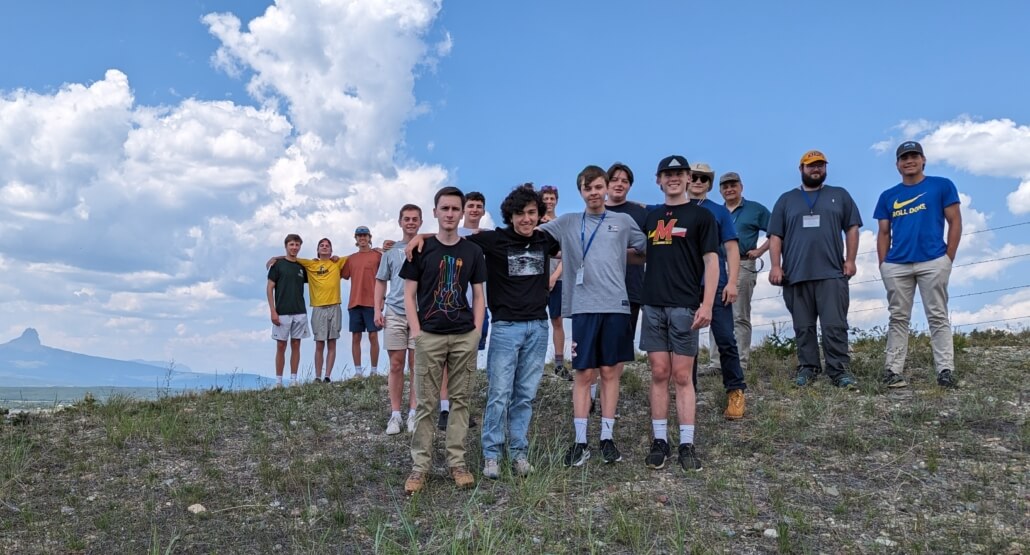
Hallmarks of A Successful Partnership
In Global Volunteers’ decades of crafting service-learning opportunities for high-school and university groups, several basics emerged for effective and ethical student volunteering. Foremost, the service must be grounded in community development projects envisioned and managed by local people. Equally critical is the school’s careful attention to Global Volunteers’ proprietary volunteer mobilization practices and philosophy of service. Through initial discussions, we can discern the school’s requirements for student engagement and the academic context for the learning opportunities through service. From this foundation, Global Volunteers can effectively integrate students into meaningful and educational service assignments to both complement the school’s learning objectives and directly contribute to the community’s vision. Planning for onsite success, therefore requires that together, our management staff and the school’s administration thoughtfully consider the intended results of students’ role as team members and the daily practices that will enhance their experience. As preparations advance, expectations and intentions are clearly shared, with a commitment to communicate openly when reviewing daily progress onsite. We agree to make adjustments when necessary to benefit the educational and service mission of both partners. With mutual understanding and respect for these basic program elements, students’ contributions and the school’s academic outcomes are optimized as local people benefit from volunteer hours. Further, as equal partners with aligned agendas, Global Volunteers and our academic partners have consistently demonstrated the powerful impact of student volunteers.
“So far on this program, I wake up expecting the unexpected. People here wake up every day and prepare for another day of survival.”
Sam, a Loyola Blakefield student
Students themselves, of course, are the pivotal element in effective service-learning. School groups who are oriented toward positive impacts for the individual volunteers as well as the team, school and community experience the greatest rewards. That requires significant pre-planning, adherence to codes of conduct, collaboration with the team leader and local project leaders, and close supervision of students at work sites. Loyola’s Katchko says working out agreements with students and Global Volunteers long in advance of the service program is key to success in the host community. “I’ve always been reassured by Global Volunteer’s attention to our mission to form men to serve with and for others, specifically to integrate service and justice, diversity and open-mindedness into a Jesuit education, which closely aligns with Global Volunteers’ focus on applied outcomes of service-learning.”
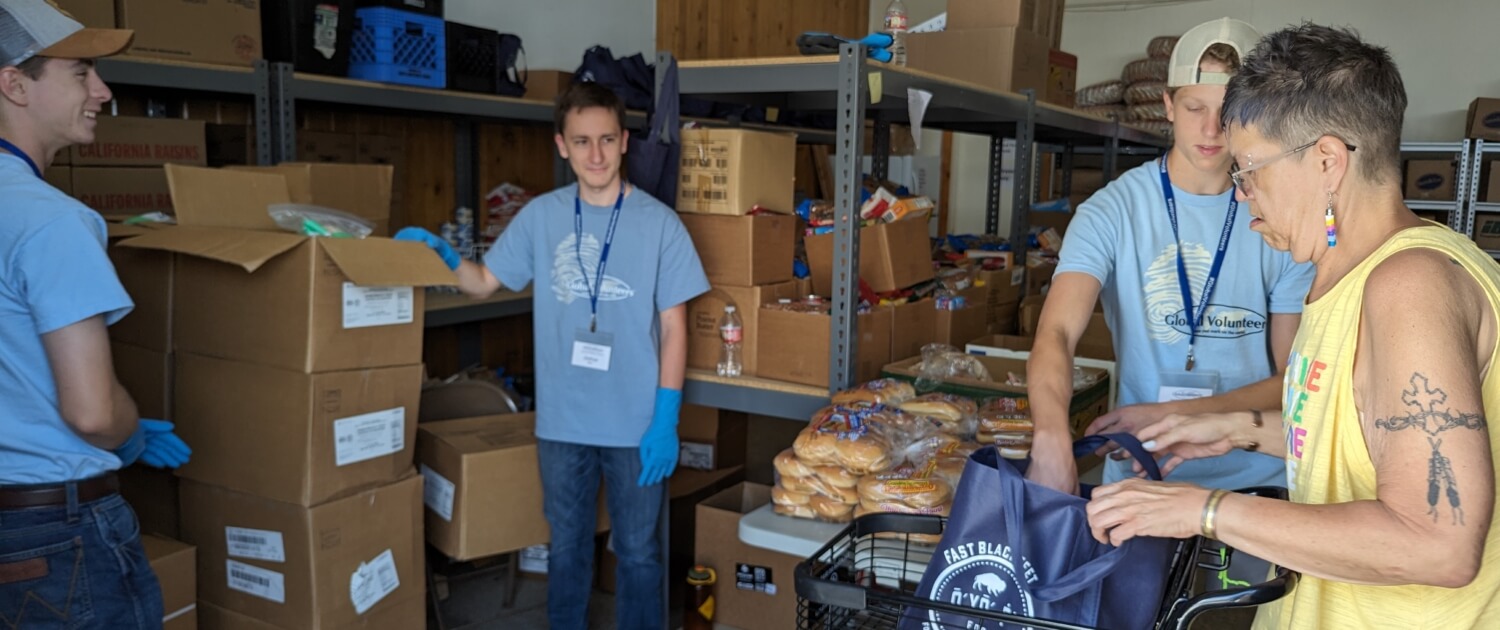
Service Learning as an Antidote to Social Detachment
In the midst of challenging and confusing world events, students may disengage from difficult discussions around topics and populations. Service learning is a pathway to understanding people and cultures that appear different from ourselves. Through these connections, we may quickly find commonalities and learn that we’re more alike than different.
When working and living with local people, we have daily access to workplaces, learning environments and community spaces where we gain a rare, “non-tourist” perspective of the host culture. In these everyday encounters, we obtain informed insights which develop organically – unpressured and natural. Students can form their own understanding and question stereotypes that might be inherent in conventional political or academic settings.
Sam, a Loyola Blakefield student, wrote in 2023: “At this point, my understanding of life on the reservation and Blackfeet culture has grown significantly. My first impression underlines the complexity of life on the reservation. Early in the day I wrote, ‘I’ve learned that the communities are family-oriented and respect the older population highly.’ Throughout the day I realized that there is more to it than and these people are hurting, struggling, and in great need of hope. So far on this program, I wake up expecting the unexpected. People here wake up every day and prepare for another day of survival.”
It’s hard to imagine how a student can achieve this realization outside of personal experience. Global Volunteers is committed to cultivating genuine service experiences from which deep learning occurs. For student groups, we frame the three primary educational elements of service, culture and teamwork by focusing on an immersive, full day of team service assignments and after-work free time to pursue cultural and educational opportunities. Throughout each day, we provide expert support and guidance for team roles, collaborative work, individual assignments and self-reflection.
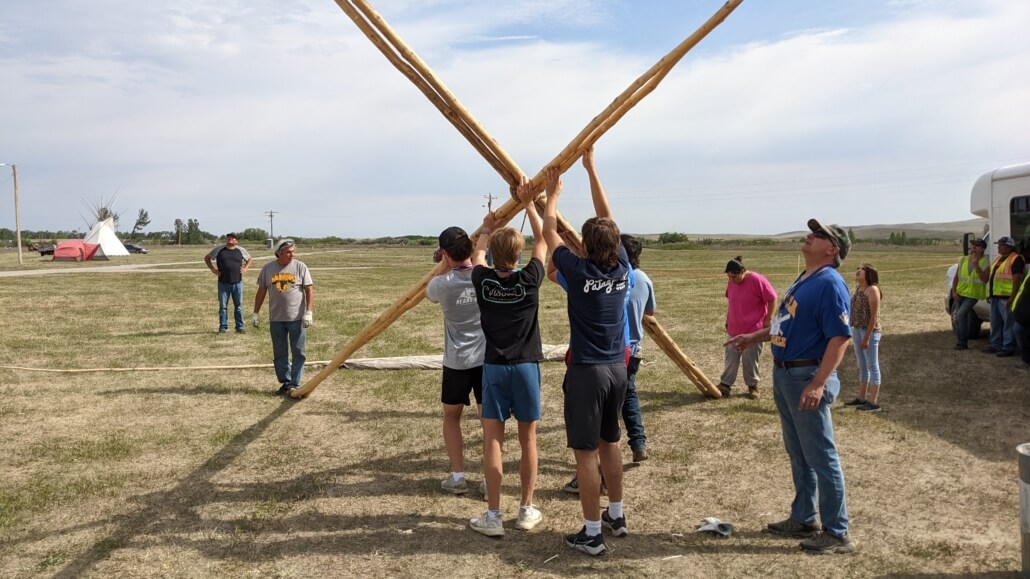
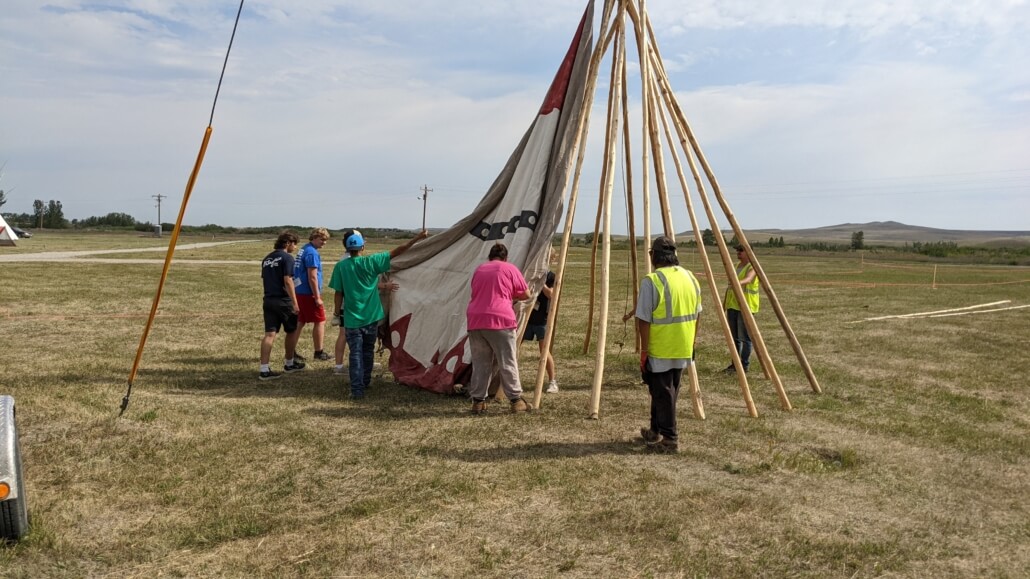
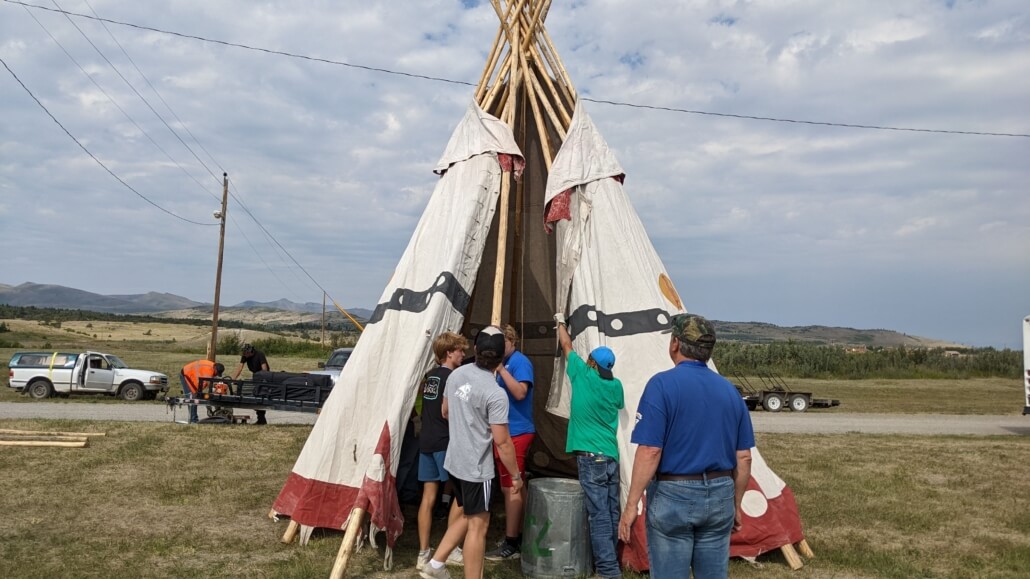
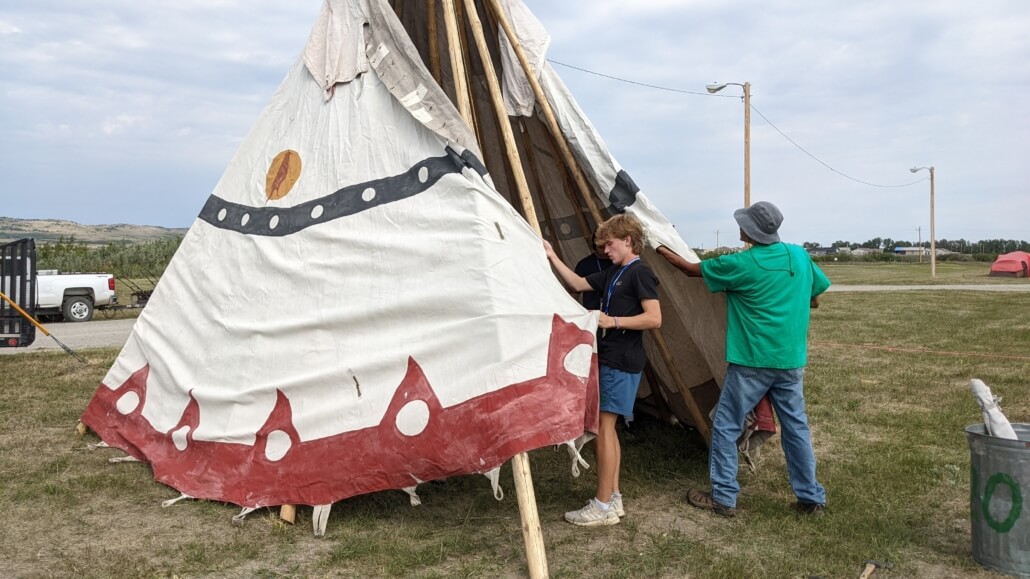
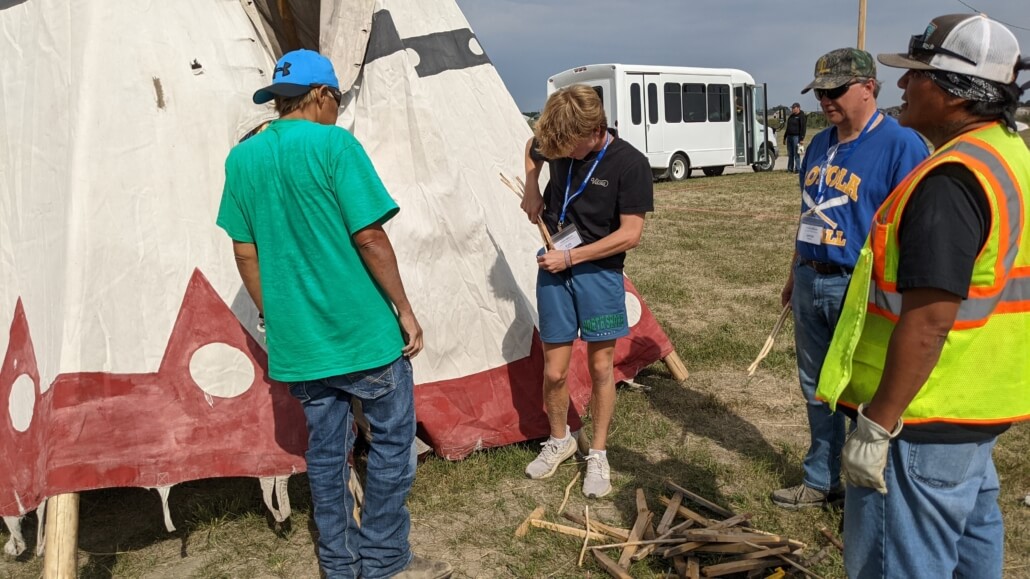
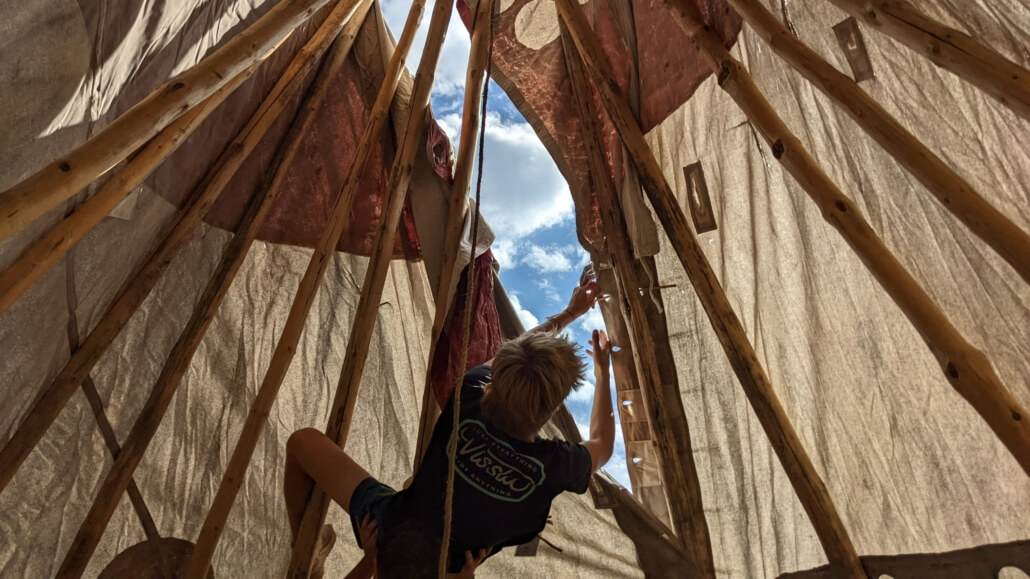
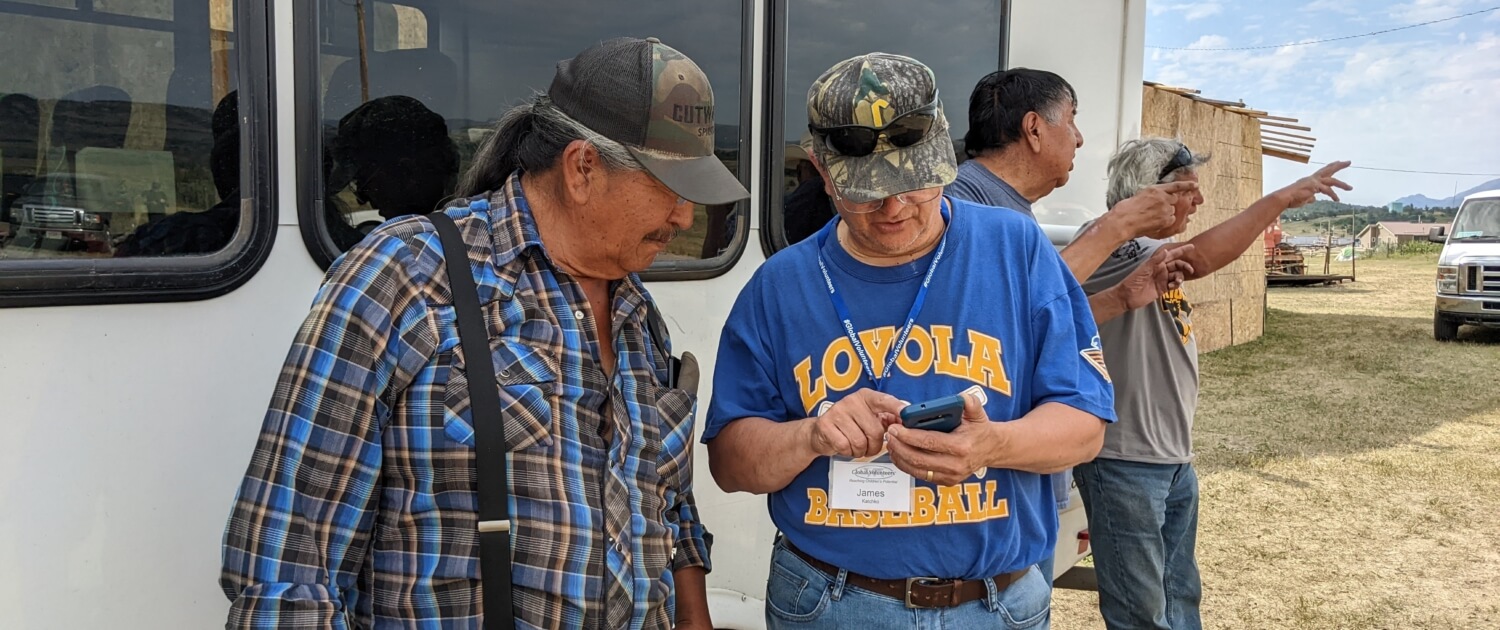
Service Learning as a Practical Extension to the Classroom
Katcho says important educational themes in service learning ensure maximum benefit for students. For instance, one is understanding that service learning is rooted in a sound understanding of how learning actually occurs, specifically that knowledge is not merely transmitted from teacher to learner, but rather is gained by the learner through guided interaction with society. He says he greatly enjoys “seeing the light go on” during after-work discussions when a student comes to a new understanding.
“Here, I know we can make a difference – not just in students’ lives, but in the lives of people who deserve our help and respect.”
Loyola Blakefield instructor and student group leader James Katchko
By reflecting on their experiences, Jim said, they can develop critical-thinking skills – such as the ability to connect disparate elements of experience together to form larger perspectives. This discernment forms the foundation of Loyola’s education. Global Volunteers’ program structure, therefore, provides space for students’ insights by adding these elements:
- SERVICE
Orienting to the focal point of service to others
Stretching to learn new abilities and skills
Adjusting to structured days of work projects
Learning the value and expectations of volunteerism
Adopting a mature mindset in applying ones’ self
Understanding the core value of service
Developing a new appreciation of “hands-on” work
Becoming a part of genuine community development work - CULTURE
Offering daily access to local people in their workplaces and community spaces
Connecting with community youth on formative projects
Presenting insight into local problems, challenges, successes
Helping develop curiosity for differing viewpoints and lifestyles
Highlighting contrasting decision-making and goal-setting styles of host and home cultures
Providing authentic cultural activities organically; not manufactured events - TEAMWORK
Relying on the discipline of collaborating with other students on a common goal
Respecting the students’, faculty’s, team leader’s and community partners roles
Sharing responsibilities at the work sites and at team meetings
Accessing and contributing to individual and group reflection time
Producing project reports and evaluating experiences
Respecting daily schedule and team expectations for communal living
Loyola student, Preston, said in 2022: “So far, my trip to the Blackfeet Indian Reservation has been an eye-opening experience. I learned I can do work I’ve never done before. The rolling hills and the culture is beautiful. On top of the hills and the national park is the most beautiful thing I’ve ever seen.”
By linking classroom instruction with service learning, students can deepen their understanding of academic concepts and gain a better appreciation of the relevance of their education. They may become more engaged and motivated learners, leading to improved academic performance and future success. Having a service-learning partner who respects these outcomes is critical, Katchko said.
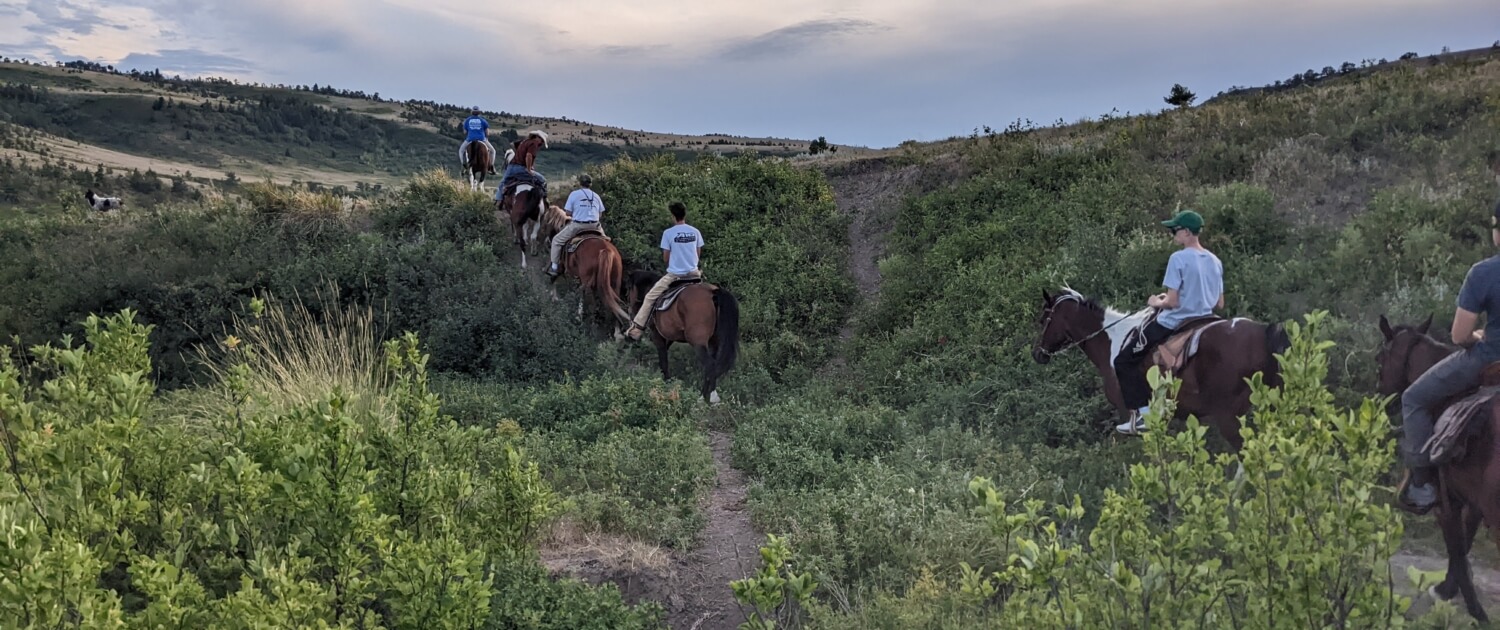
Service Learning as a Preparation for Life
Ultimately, Katchko says service-learning helps prepare students for life. It’s a powerful tool for high school students to learn about themselves, their communities, and the world around them. Students may discover new applications for their knowledge and skills in unfamiliar settings. This experience helps them develop a sense of responsibility towards making the world a better place, he says, and encourages them to become active citizens who contribute positively to society.
But, to do this, students must step outside their comfort zones, accept ambiguity and flexibility, develop their problem-solving skills, and strive to work effectively in organized teams. These experiences can help them become more confident, resilient, and adaptable individuals, as they prepare for future educational pursuits and careers.
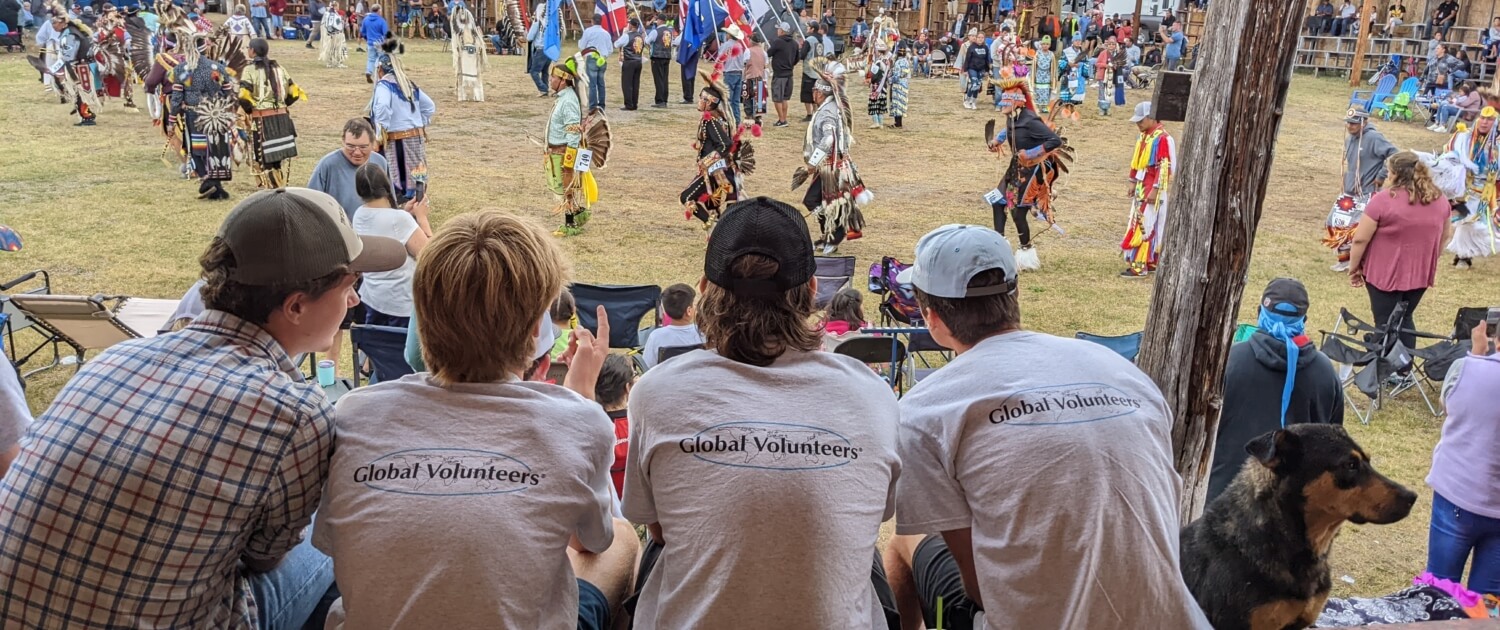
Loyola student, Tucker, summed up his new perspective in 2023: “It hit me today when Mr. Katchko said that we as Loyola students are in the top 7 percent of Americans with privilege, and we need to recognize and be grateful for that. One way to honor others, he said is to say ‘hello’ to everyone we meet. Today, I started greeting more people. This has helped me realize how nice and genuine these people are, and it makes us realize how much we need to value this opportunity.”
Throughout Loyola’s service-learning programs, student volunteers acquired, evaluated, organized, interpreted, and communicated information in group discussions, private conversations and a team journal. We’ve learned that the experience lives on long after the students return home. Their expanded frame of reference leads to intellectual curiosity, love of discovery, and greater respect toward the common good, ethnic diversity, and distinct cultures. Katchko says this awareness – obtained in just one or two weeks – can change the course of a student’s life.
If your high school is interested in partnering with Global Volunteers on short-term study abroad service-learning programs, we would love to connect and discuss how we can work together.




Leave a Reply
Want to join the discussion?Feel free to contribute!